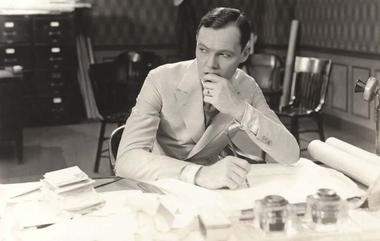recruiting-strategy
Recruiting freaky Friday: how can recruiters prepare for interviewing?


Orla Hodnett
HireHive

Orla Hodnett
HireHive


Orla Hodnett
HireHive

Orla Hodnett
HireHive
Interviews are famously stressful situations for many candidates. It’s very easy to blame a candidate’s nervousness or preparation for passing them over for a position. But how much can the interviewer do to alleviate the situation? The way you go about the job of interviewing can sway the direction very strongly one way or another. Interview time is invaluable to the recruiting process, so it’s imperative to get the very best out of those few minutes.
There’s no good saying that an interview did not go well, if you did not prepare well. Reviewing a CV very carefully and preparing questions are essential. Beyond being punctual and doing your best to calm the nerves of a candidate, here’s a few things to bear in mind.
Your main job in the interview is assessing the candidate as a potential hire, so this requires a specific strategy. When in the interview process it’s very easy to be swayed by your own feelings or opinions, but is essential to remain impartial. The candidate’s experience, skills and attitude are what you need to pay attention to. Implementing specific techniques and strategies makes it very easy to remain on course.
Deciding upon the criteria that you cannot do without in a candidate, it makes it very simple to make decisions.
One particularly effective technique is implementing a ‘grading rubric’. By deciding upon the criteria that you cannot do without in a candidate, it makes it very simple to make decisions. Just because you like the attitude of one candidate, doesn’t mean that they will make a positive impact on your team. Integrating tests or assessments are another good way of determining that they possess the skills that you need for the jobs you’re advertising.
Carefully planned and selected behavioral questions can offer excellent insight to the HR department and make their recruitment process much easier. A change of tact or some creative questioning can illuminate certain aspects of a candidate’s character or skillset. While having a plan is essential, remaining a little flexible can make these clear.
What to look for in a candidate: some of this is quite obvious. Ask questions about your own organisation, to determine if a candidate has done their research. Does the candidate express a healthy interest in your organisation or do they ask questions about the role? You should also perceive the body language and attitude of the candidate. Having an informal chat with colleagues can be a great way of determining this. Shyness is one thing, but disinterest is another thing altogether.
It is important to let a candidate talk too. You should let them lead the conversation to let them show their understanding, knowledge and insights on the industry or even natural aptitude. The interview is the only time that you will be able to assess the person, as any information about one’s career or education can be lifted straight from a CV. This is what is unique about the interview process and should be embraced.
You should take the time to review interviews with the hiring team afterwards. Candidates also need to feel they are respected, so follow-up should be relatively quick. Whether the answer is yes or no, you should part from candidates on positive terms, as this is the lasting impact you will leave on them about your organisation. Recruiting software offers a very straightforward means of keeping up contact.
Sign up for our monthly newsletter to receive the latest news, insights, and exclusive resources.

“HireHive makes the team a lot more productive. We’d be lost without it. Team Leaders can do it all themselves if needed or jump in at the right time and know exactly where everything is and what’s happening.”

Hilary Dempsey Head of HR at Life Credit union